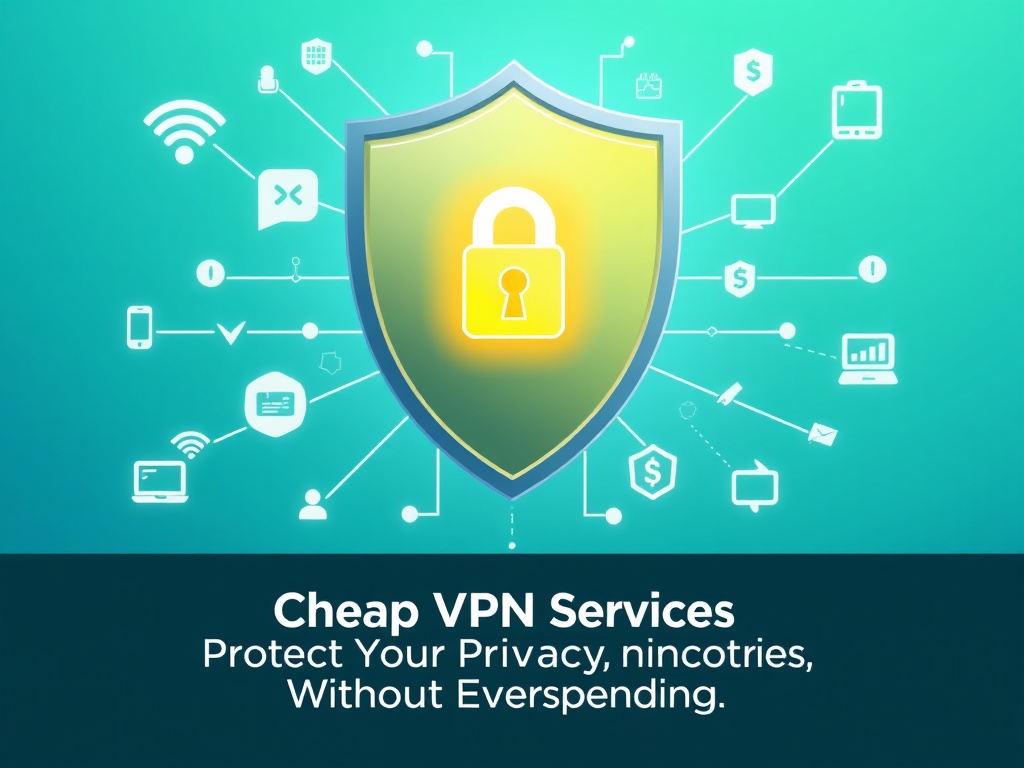Cheap VPN Services: Simple Ways to Protect Your Privacy

We all know the internet can be a noisy and sometimes risky place. Between advertisers tracking your clicks, hackers hoping you’ll slip up on public Wi-Fi, and streaming apps telling you “not available in your region,” it can feel like you’re always under a spotlight. That’s where VPNs come in—and here’s the nice surprise: you don’t need a premium plan to cover the basics. Nakase Law Firm Inc. often points out how everyday people and businesses are turning to affordable tools—like a cheap VPN—to keep costs low while still protecting themselves online. Now, if you’re wondering whether a budget option can really hold up, the short answer is yes for most everyday needs.
Not everyone needs the priciest service with every knob and dial. Lots of folks just want to watch a show that’s locked to another country, avoid creepy ad tracking, and keep their bank info safe at the airport. California Business Lawyer & Corporate Lawyer Inc. often makes the comparison that picking the right VPN is a lot like choosing between Corp vs LLC—you’ve got to weigh what fits your needs without overspending. And if you’re thinking, “I’m not a tech person,” you’re in good company; most people just want one tap and done.
What a VPN actually does (in plain English)
A VPN is like a private tunnel for your internet. Normally, your connection is like sending a postcard with your home address on it—easy to read along the way. With a VPN, that postcard goes into a sealed envelope. Your traffic gets encrypted, your IP address is masked, and snoops have a much tougher time figuring out who you are and what you’re doing.
There’s also the part people love: location flexibility. Say your favorite series only streams back home. Connect to a server in that region and, just like that, the wall comes down. If you travel often, this little trick can make nights in the hotel feel a lot more like home.
Why go cheap instead of premium?
Picture your monthly subscriptions as a stack of small fees that keep inching up. If you can get the basics from a low-cost VPN, that’s one place to trim. A budget plan can still give you private browsing, safer logins on café Wi-Fi, and access to blocked sites. For plenty of users, that’s the whole wish list.
A quick story: a friend who freelances from coffee shops used a free VPN for months. It capped data and crawled at peak hours. Then he switched to a low-cost plan during a holiday sale and messaged later, “It just works.” No drama, no extra steps—just a smoother day.
Upsides you’ll notice with affordable VPNs
- Your wallet gets a breather, and you still get encrypted connections.
- Geo-blocks stop being roadblocks for many streaming and news sites.
- Apps usually run on phones, laptops, and tablets without extra fees.
- Interfaces tend to be clean and simple, which keeps setup painless.
What you can expect (and what you can’t)
Plenty of budget services ship with bank-grade encryption, a no-logs stance, a kill switch to prevent leaks if the connection drops, and a healthy spread of server locations. That covers the core use cases for most people: privacy, safer public Wi-Fi, and region switching.
There are trade-offs. At busy times, speeds can dip. Server lists may be smaller. Advanced tools—like multi-hop routes or deep customization—might be limited. For casual browsing, streaming, and day-to-day work, those limits are usually easy to live with.
How to pick a cheap VPN without regretting it
- Look for clear security basics: strong encryption and a plain-spoken privacy policy.
- More server regions often means less crowding and smoother streaming.
- Check independent speed notes; no one wants buffering during the big game.
- Confirm it works on all your devices—and how many you can connect at once.
- Try the app. If you can’t figure it out in a minute, keep shopping.
- Peek at support options. Quick responses—even by email—can save your afternoon.
A quick tip for shoppers: set a reminder for seasonal sales. Many providers run steep discounts on long-term plans, and the per-month price drops a lot.
Popular cheap VPNs people actually like
- Surfshark: friendly pricing, unlimited devices, and reliable streaming access.
- CyberGhost: approachable apps, plenty of servers, and solid multi-year deals.
- Private Internet Access (PIA): affordable and adjustable for folks who like settings.
- Atlas VPN: straightforward and budget-friendly for everyday use.
- ProtonVPN (basic plan): well-known name with fair prices and no fuss.
If you’re torn between two options, try monthly for a cycle or two, then switch to the long plan once you’re sure. Little connector here: that small test often pays for itself by helping you avoid a mismatch.
Free vs. cheap VPN: is the jump worth it?
Short story: a colleague tried a free VPN for travel. Data limits kicked in during a work call; the connection sputtered, and the call dropped right as the client asked for pricing. That was the last day of the free plan. A low-cost subscription gave steady speeds, more servers, and fewer headaches.
Free services can be tempting, and some are okay for light use. Even so, limits on data, speed, and features tend to show up right when you need consistency. Paying a few dollars a month usually means smoother connections and clearer privacy promises.
Real-world use cases where a cheap VPN shines
- Remote work on public Wi-Fi: need to send a contract from a café? Flip on the VPN first.
- Streaming abroad: grab a server back home and catch your regular shows.
- Traveling with multiple devices: connect your phone and laptop without juggling logins.
- Solo or small-team business: protect client files without adding an expensive line item.
By the way, parents often ask about kids using public Wi-Fi. A budget VPN can help lock things down when students study at libraries or campus lounges. It’s not a cure-all, yet it adds a solid layer of protection to everyday browsing.
Quick FAQ-style notes
- Is setup hard? Most apps are two or three taps from download to go-time.
- Will my internet slow down? Some—yes. Look for providers with nearby servers and good speed reviews.
- Can I use one account on multiple devices? Many budget plans allow several at once; check the number before you buy.
A few gentle shopping connectors to keep in mind
Start with your needs, then match a plan: maybe you stream a lot, care most about privacy on public Wi-Fi, or switch countries often for news and sports. Next, skim a couple of independent reviews that focus on speed and reliability. Finally, check refund windows; many providers offer 30 days, which gives you time to test during your real life, not just a quick demo.
Wrapping it up
Cheap VPNs won’t turn your setup into a tech showpiece, and that’s perfectly fine. They bring the basics that matter for daily life: private browsing, safer logins on public networks, and access to content across borders. Do a little comparison, grab a deal, and you’re set. If you’ve ever sighed at a “not available in your region” screen or worried about logging in on café Wi-Fi, a cheap VPN is one of those small choices that can make your online time calmer and more secure.




